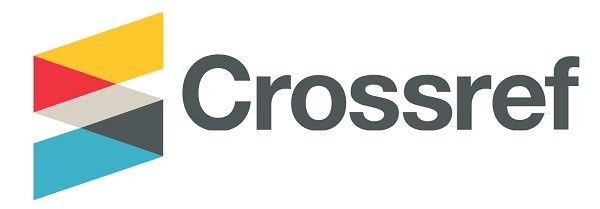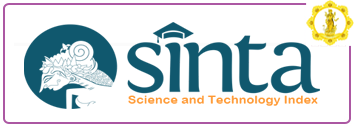ADDITIONAL MENU
About the Journal
The Jurnal Penjaminan Mutu with print ISSN 2407-912X (SK no. 0005.122/JI.3.2./SK.ISSN/2015.01 - 30 January 2015, starting from Volume 1, Number 1, February 2015) and online ISSN 2548-3110 (SK no. 0005.25483110/JI.3.1/SK.ISSN/2016.11 - 29 November 2016, starting from Volume 3, Number 1, February 2017) is published by the Lembaga Penjaminan Mutu Universitas Hindu Negeri I Gusti Bagus Sugriwa Denpasar. Since 2015, it has been dedicated to the dissemination of positive ideas, concepts, and inputs related to the improvement of the quality of higher education. This is because the quality assurance process in a higher education institution is not only an activity to ensure that promises are fulfilled but also includes efforts to improve quality sustainably, both through planning and implementation of activities, internal monitoring and evaluation, self-evaluation, auditing, benchmarking, and dissemination of ideas through scientific writing. The Jurnal Penjaminan Mutu is currently ACCREDITED by the Ministry of Research, Technology, and Higher Education, as well as being indexed by DOAJ, CrossRef, Google Scholar, Sinta, One Search, and Moraref.
Focus & Scope
The Jurnal Penjaminan Mutu, published by Lembaga Penjaminan Mutu Universitas Hindu Negeri I Gusti Bagus Sugriwa Denpasar, is dedicated to the dissemination of positive ideas, concepts, and inputs related to the improvement of the quality of higher education. This is because the quality assurance process in a higher education institution is not only an activity to ensure that promises are fulfilled, but also includes efforts to improve quality sustainably. The focus of the Jurnal Penjaminan Mutu is on planning, implementation, monitoring/evaluation, and quality development of learning/education.
Peer Review Process
Submitted papers are evaluated by double blind peer review for contribution, originality and relevance. The Editor shall inform you of the results of the review as soon as possible, hopefully in 6 months. Please notice that because of the great number of submissions that [Jurnal Penjaminan Mutu] has received during the last few months the duration of the review process can be up to 10 months.Open Access Policy
This journal provides immediate open access to its content on the principle that making research freely available to the public supports a greater global exchange of knowledge.Publication Ethics
Jurnal Penjaminan Mutu (JPM) is a peer-reviewed electronic journal. This statement clarifies the ethical behaviour of all parties involved in the act of publishing an article in this journal, including the author, the chief editor, the Editorial Board, the peer-reviewer and the publisher. This statement is based on COPE’s Best Practice Guidelines for Journal Editors.
Ethical Guideline for Journal Publication
The publication of an article in a peer-reviewed JPM journal is an essential building block in the development of a coherent and respected network of knowledge. It is a direct reflection of the quality of the work of the authors and the institutions that support them. Peer-reviewed articles support and embody the scientific method. It is, therefore, important to agree upon standards of expected ethical behaviour for all parties involved in the act of publishing: the author, the journal editor, the peer reviewer, the publisher and the society.
Publication decisions
The editor of the Jurnal Penjaminan Mutu is responsible for deciding which of the articles submitted to the journal should be published. The validation of the work in question and its importance to researchers and readers must always drive such decisions. The editors may be guided by the policies of the journal's editorial board and constrained by such legal requirements as shall then be in force regarding libel, copyright infringement and plagiarism. The editors may confer with other editors or reviewers in making this decision.
Fair play
An editor at any time evaluate manuscripts for their intellectual content without regard to race, gender, sexual orientation, religious belief, ethnic origin, citizenship, or political philosophy of the authors.
Confidentiality
The editor and any editorial staff must not disclose any information about a submitted manuscript to anyone other than the corresponding author, reviewers, potential reviewers, other editorial advisers, and the publisher, as appropriate.
Disclosure and conflicts of interest
Unpublished materials disclosed in a submitted manuscript must not be used in an editor's own research without the express written consent of the author.
Duties of Editor
The editor responsible for receiving submissions should be sent by the authors. In the process of editing the manuscript, the editor in conducting the assessment must still prioritize the weight of scientific articles were examined, with prejudice to race, gender, ethnicity, religion, nationality and political views of the writer. The editors are not allowed to conceal information about the article in question, except to the authors, bebestari partners and publishers. If the manuscripts are accepted less worthy of publication, the editors must maintain the confidentiality of the manuscript, so as not to be used by others, except by permission of the authors.
Duties of Reviewers
Contribution to Editorial Decisions
Peer review assists the editor in making editorial decisions and through the editorial communications with the author may also assist the author in improving the paper.
Promptness
Any selected referee who feels unqualified to review the research reported in a manuscript or knows that its prompt review will be impossible should notify the editor and excuse himself from the review process.
Confidentiality
Any manuscripts received for review must be treated as confidential documents. They must not be shown to or discussed with others except as authorised by the editor.
Standards of Objectivity
Reviews should be conducted objectively. Personal criticism of the author is inappropriate. Referees should express their views clearly with supporting arguments.
Acknowledgement of Sources
Reviewers should identify relevant published work that has not been cited by the authors. Any statement that observation, derivation, or argument had been previously reported should be accompanied by the relevant citation. A reviewer should also call to the editor's attention any substantial similarity or overlap between the manuscript under consideration and any other published paper of which they have personal knowledge.
Disclosure and Conflict of Interest
Privileged information or ideas obtained through peer review must be kept confidential and not used for personal advantage. Reviewers should not consider manuscripts in which they have conflicts of interest resulting from competitive, collaborative, or other relationships or connections with any of the authors, companies, or institutions connected to the papers.
Duties of Authors
Reporting standards
Authors of reports of original research should present an accurate account of the work performed as well as an objective discussion of its significance. Underlying data should be represented accurately in the paper. A paper should contain sufficient detail and references to permit others to replicate the work. Fraudulent or knowingly inaccurate statements constitute unethical behaviour and are unacceptable.
Data Access and Retention
Authors are asked to provide the raw data in connection with a paper for editorial review, and should be prepared to provide public access to such data (consistent with the ALPSP-STM Statement on Data and Databases), if practicable, and should in any event be prepared to retain such data for a reasonable time after publication.
Originality and Plagiarism
The authors should ensure that they have written entirely original works, and if the authors have used the work and/or words of others that this has been appropriately cited or quoted.
Multiple, Redundant or Concurrent Publication
An author should not, in general, publish manuscripts describing essentially the same research in more than one journal or primary publication. Submitting the same manuscript to more than one journal concurrently constitutes unethical publishing behaviour and is unacceptable.
Acknowledgement of Sources
Proper acknowledgement of the work of others must always be given. Authors should cite publications that have been influential in determining the nature of the reported work.
Authorship of the Paper
Authorship should be limited to those who have made a significant contribution to the conception, design, execution, or interpretation of the reported study. All those who have made significant contributions should be listed as co-authors. Where there are others who have participated in certain substantive aspects of the research project, they should be acknowledged or listed as contributors. The corresponding author should ensure that all appropriate co-authors and no inappropriate co-authors are included on the paper and that all co-authors have seen and approved the final version of the paper and have agreed to its submission for publication.
Hazards and Human or Animal Subjects
If the work involves chemicals, human, animals, procedures or equipment that have any unusual hazards inherent in their use, the author must clearly identify these in the manuscript.
Disclosure and Conflicts of Interest
All authors should disclose in their manuscript any financial or other substantive conflicts of interest that might be construed to influence the results or interpretation of their manuscript. All sources of financial support for the project should be disclosed.
Fundamental errors in published work
When an author discovers a significant error or inaccuracy in his/her own published work, it is the author’s obligation to promptly notify the journal editor or publisher and cooperate with the editor to retract or correct the paper.
Article Submission: 0.00 (IDR)
Authors are not required to pay an Article Submission Fee.
Copyright Notice
- Authors retain copyright and grant the Jurnal Penjaminan Mutu right of first publication with the work simultaneously licensed under a Creative Commons Attribution License (CC BY-SA 4.0) that allows others to share (copy and redistribute the material in any medium or format) and adapt (remix, transform, and build upon the material) the work for any purpose, even commercially with an acknowledgement of the work's authorship and initial publication in Jurnal Penjaminan Mutu.
- Authors are able to enter into separate, additional contractual arrangements for the non-exclusive distribution of the journal's published version of the work (e.g., post it to an institutional repository or publish it in a book), with an acknowledgement of its initial publication in Jurnal Penjaminan Mutu.
- Authors are permitted and encouraged to post their work online (e.g., in institutional repositories or on their website) prior to and during the submission process, as it can lead to productive exchanges, as well as earlier and greater citation of published work (See The Effect of Open Access).








